Roads of Kiarostami is a film of genre Documentary directed by Abbas Kiarostami with Abbas Kiarostami
Roads of Kiarostami (2006)
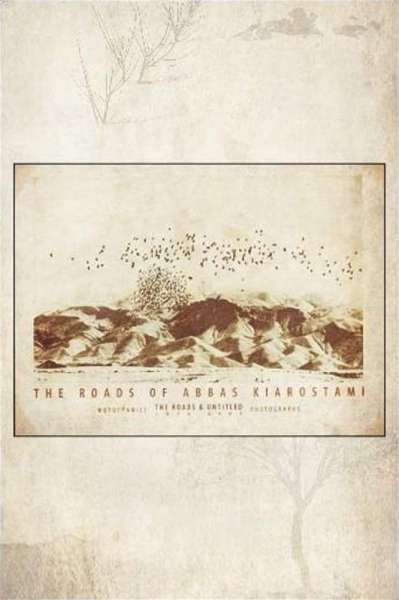
If you like this film, let us know!
Roads of Kiarostami is a 2005 Iranian documentary film directed by Abbas Kiarostami.
Looking to his own art for inspiration, Abbas Kiarostami reflects on the power of landscape, which combines views of the Iranian auteur's austere black-and-white photographs with poetic observations, engaging music and a politically provocative finale.
Actors
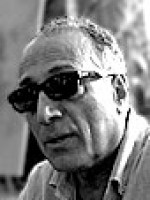
Abbas Kiarostami
(Self)
Comments
Leave comment :
Suggestions of similar film to Roads of Kiarostami
There are 6 films with the same actors, 37 films with the same director, 8959 with the same cinematographic genres, 2533 films with the same themes (including 136 films with the same 2 themes than Roads of Kiarostami), to have finally 70 suggestions of similar films.If you liked Roads of Kiarostami, you will probably like those similar films :

First Graders (2021)
, 1h25Directed by Abbas Kiarostami
Genres Documentary
Themes Films about education, Films about children, Documentaire sur une personnalité
Rating73%





Une école primaire iranienne au milieu des années 1980. Dès qu’un conflit éclate, les élèves concernés sont envoyés dans le bureau du directeur qui les interroge de façon à ce qu’ils reconnaissent d’euxmêmes leur part de responsabilité, toujours selon le même cérémonial : interrogation, aveux, repentir.

10 on Ten (2004)
, 1h28Directed by Abbas Kiarostami
Origin Iran
Genres Documentary
Themes Films about films, Documentary films about business, Documentary films about the film industry, Documentary films about films
Actors Abbas Kiarostami
Rating66%





Abbas Kiarostami reprend le dispositif de son film Ten sorti en 2002 : une voiture circulait dans les rues de Téhéran, avec deux caméras fixées sur le tableau de bord, une filmant la conductrice et l'autre filmant le passager. Dans 10 on Ten, une seule caméra filme le conducteur qui se trouve être Kiarostami lui-même. En roulant au travers de la campagne iranienne, il évoque devant le spectateur la réalisation de Ten. Ceci est le point de départ d'une réflexion plus générale sur le processus de création du réalisateur, son rapport au documentaire, au sujet filmé, aux caméras numériques et à l'industrie du cinéma.
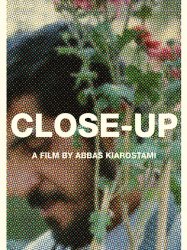
Close-Up (1990)
, 1h34Directed by Abbas Kiarostami
Origin Iran
Genres Drama, Documentary, Crime
Themes L'usurpation d'identité, Escroquerie
Actors Mohsen Makhmalbaf, Abbas Kiarostami, Abolfazl Ahankhah
Rating81%





Hossain Sabzian is a cinephile, and in particular a big fan of popular Iranian director Mohsen Makhmalbaf. One day, Sabzian is riding a bus with a copy of the novel The Cyclist; Mrs. Ahankhah sits next to him, revealing she is a fan of the novel's film adaptation. Sabzian tells her that he himself is Makhmalbaf, the maker. She is then surprised that a famous director would ride public transportation; Sabzian explains in response (posing as Makhmalbaf) that he finds his film subjects this way, telling her that art must spring from life. Posing as Makhmalbaf from this point on, Sabzian visits the Ahankhah family several times over the next two weeks. He flatters them by saying he wants to use not only their house in his next film, but also their sons as actors in it. He even obtains a substantial amount of money from them (ostensibly to prepare for the film). Mr. Ahankhah has his suspicions, however, especially when a magazine photo shows a younger Makhmalbaf with darker hair than that of Sabzian. He invites a journalist (Hossain Farazmand) over, who confirms Sabzian is indeed an impostor. The police come to arrest Sabzian, while Farazmand takes several pictures for his upcoming article: "Bogus Makhmalbaf Arrested." Kiarostami intersperses these scenes throughout the film, in which the events described above do not progress chronologically; they are re-enactments.

ABC Africa (2001)
, 1h24Directed by Abbas Kiarostami
Origin Iran
Genres Documentary
Themes Films about children, Medical-themed films, Documentary films about health care, HIV/AIDS in film
Actors Abbas Kiarostami
Rating67%





En avril 2000, en Ouganda, Abbas Kiarostami et son assistant, Seifollah Samadian, sollicités par une association humanitaire, le Fida, débarquent à Kampala. Pendant une dizaine de jours, ils découvrent de nombreux enfants ayant perdu leurs parents à cause du Sida. Leur caméra témoigne d'une Afrique joyeuse malgré la souffrance et la maladie.

Homework (1989)
, 1h26Directed by Abbas Kiarostami, Jaime Humberto Hermosillo
Origin Iran
Genres Documentary
Themes Films about education
Actors Abbas Kiarostami
Rating77%





The films consists almost exclusively of interviews with a number of pupils and two fathers of pupils at Shahid Masumi school who are asked to give their opinion on the traditional teaching practice of assigning homework. Issues such as some parents' illiteracy and their inability to help their children with the homework are raised. The children don't always succeed in hiding the more embarrassing aspects of their family life (corporal punishment, poverty, etc.).
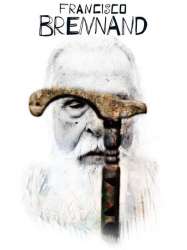
Francisco Brennand (2012)
, 1h15Origin Bresil
Genres Biography, Documentary, Historical
Themes Documentary films about the visual arts, Documentaire sur une personnalité
Rating63%






The Trip To Tunis (2007)
, 1h15Origin Austria
Genres Documentary
Themes Documentary films about the visual arts, Documentaire sur une personnalité
This documentary connects two artistic trajectories belonging to two different eras. The former was done by Paul Klee, whose work was considerably influenced by his journey to Tunis, Tunisia, in 1914. The latter is done by the Tunisian filmmaker and painter Nacer Khemir, inspired by Klee's paintings. This film shows the connection between the possibilities offered by images and reveals the links between both artists. Nearly a hundred years after Paul Klee, Nacer Khemir retraces Paul Klee's footsteps in Tunisia, guiding the spectator into the rich history and culture of Tunisia

An Essay on Matisse (1996)
Origin USA
Genres Documentary
Themes Documentary films about the visual arts, Documentaire sur une personnalité
Rating64%






My Kid Could Paint That (2007)
, 1h22Directed by Amir Bar-Lev
Origin USA
Genres Documentary
Themes Films about children, Documentary films about the visual arts, Documentaire sur une personnalité
Actors Amir Bar-Lev
Rating70%





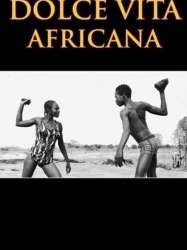
Dolce Vita Africana (2008)
, 59minutesOrigin France
Genres Documentary
Themes Documentary films about the visual arts, Documentaire sur une personnalité
Rating68%





Dolce Vita Africana is a documentary about the internationally renowned Malian photographer Malick Sidibé, whose iconic images from the late 1950s through the 70s captured the carefree spirit of his generation asserting their freedom after independence and up until an Islamic coup ushered in years of military dictatorship. The filmmaker travels to Malick Sidibé's studio in Bamako, Mali, to witness the artist at work and meet many of the subjects of his earlier photographs, whose personal stories also tell the history of Mali.
 Connection
Connection